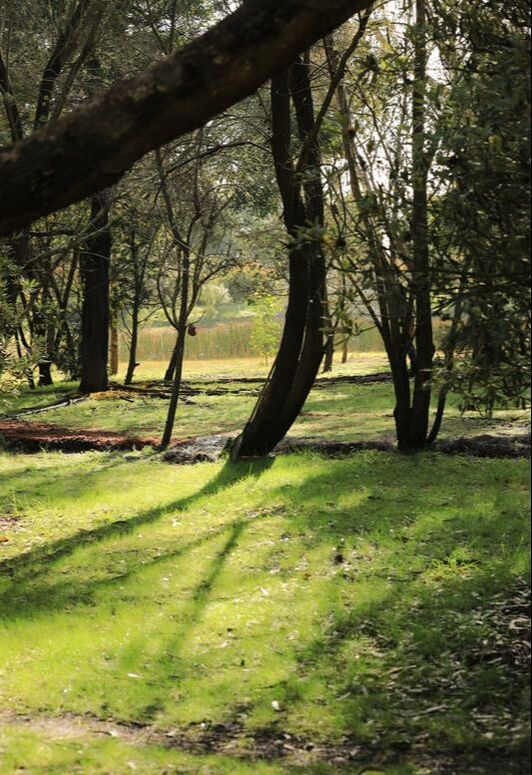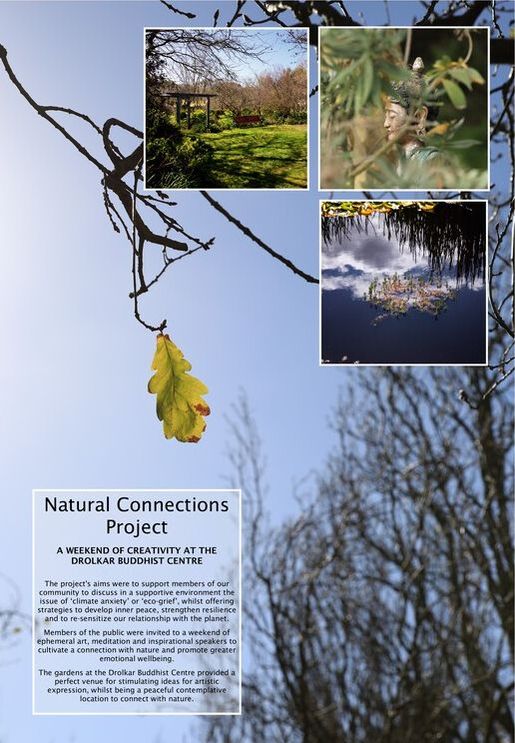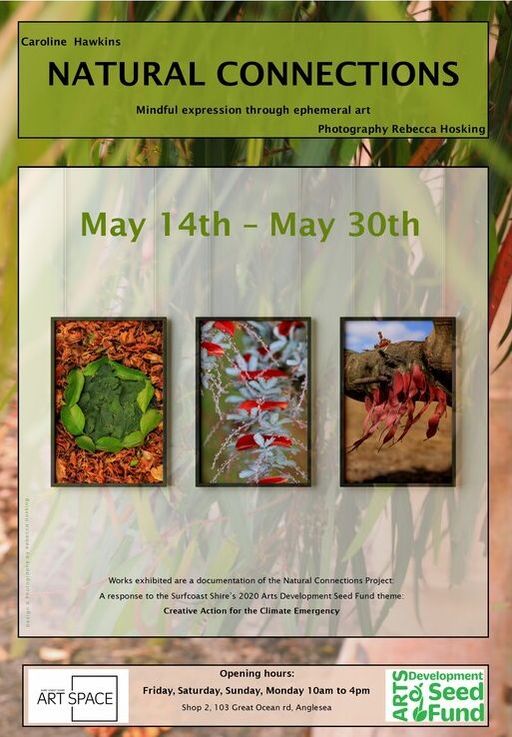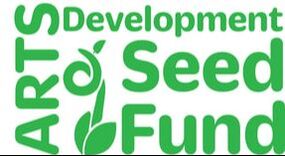Natural Connections Project 2020-21
Natural Connections acknowledges the Wadawurrung as the Traditional Owners and Protectors of this place. We acknowledge their ancestors who cared for the land, rivers and sea and all of its creatures for thousands of generations. We pay our respects to elders past, present and future.
In August 2019 the Surfcoast Shire Council made a Declaration of Climate Emergency; a recognition that climate change is real and a significant threat.
The Natural Connections Project was a recipient of Council’s 2020 Arts Development Seed Fund, which invited artists to respond to the theme 'Creative Action for the Climate Emergency' and to develop innovative responses to the issue for the community.
Caroline Hawkins and collaborator Linda Diggins from the Drolkar Buddhist Centre designed a program around the following questions:
How does climate change affect our emotional wellbeing?
and
Can the regular practice of creating art in nature, ‘Ephemeral Art’ be useful in alleviating despair over climate change?
An entire weekend of creativity at the Drolkar Buddhist Centre was planned, with the aim of supporting members of the community to discuss, in a supportive environment, the issue of ‘climate anxiety’ or ‘eco-grief’ whilst offering strategies to develop inner peace, strengthen resilience and to re-sensitise our relationship with the planet.
The Natural Connections Project was a recipient of Council’s 2020 Arts Development Seed Fund, which invited artists to respond to the theme 'Creative Action for the Climate Emergency' and to develop innovative responses to the issue for the community.
Caroline Hawkins and collaborator Linda Diggins from the Drolkar Buddhist Centre designed a program around the following questions:
How does climate change affect our emotional wellbeing?
and
Can the regular practice of creating art in nature, ‘Ephemeral Art’ be useful in alleviating despair over climate change?
An entire weekend of creativity at the Drolkar Buddhist Centre was planned, with the aim of supporting members of the community to discuss, in a supportive environment, the issue of ‘climate anxiety’ or ‘eco-grief’ whilst offering strategies to develop inner peace, strengthen resilience and to re-sensitise our relationship with the planet.
The Project involved three stages, all navigated around Covid lockdowns and restrictions!
A launch, the weekend workshop and an exhibition Photography throughout the project by Rebecca Hosking
Media Page for Interviews and articles
A launch, the weekend workshop and an exhibition Photography throughout the project by Rebecca Hosking
Media Page for Interviews and articles
|
The weekend workshop
Program and photos |
an Exhibition of works created on the weekend
|
What is climate anxiety:
Matthew Colloff writes poignantly in his book ‘Landscapes of our Hearts’ of the plethora of competing interests which contribute to our emotional response over climate change: Pessimistic visions of hopelessness pervade the discussions of environmental decline. The tendency of scientists to catalogue problems in ever-greater detail without addressing ways forward, or to promulgate assumptions that technical solutions will spontaneously emerge in the future, feeds into a collective sense of despair, confusion and disempowerment. People who believe in the development ideology use their power and authority to exploit these emotions, preventing change and ensuring their interests continue to be met. Those in power who advocate for entrenched interests want people to think that the global scale of climate change means the actions of individuals will be useless, thus robbing people of hope and agency. This perspective synergizes with a widespread public belief that the climate crisis is so overwhelming and apocalyptic there is nothing much they can do anyway.
Matthew Colloff, Landscapes of our Hearts, pg257 Thames and Hudson 2020
Matthew Colloff writes poignantly in his book ‘Landscapes of our Hearts’ of the plethora of competing interests which contribute to our emotional response over climate change: Pessimistic visions of hopelessness pervade the discussions of environmental decline. The tendency of scientists to catalogue problems in ever-greater detail without addressing ways forward, or to promulgate assumptions that technical solutions will spontaneously emerge in the future, feeds into a collective sense of despair, confusion and disempowerment. People who believe in the development ideology use their power and authority to exploit these emotions, preventing change and ensuring their interests continue to be met. Those in power who advocate for entrenched interests want people to think that the global scale of climate change means the actions of individuals will be useless, thus robbing people of hope and agency. This perspective synergizes with a widespread public belief that the climate crisis is so overwhelming and apocalyptic there is nothing much they can do anyway.
Matthew Colloff, Landscapes of our Hearts, pg257 Thames and Hudson 2020
Interested in future ephemeral art workshops?
Join my mailing list here: Workshop mailing list
Join my mailing list here: Workshop mailing list




